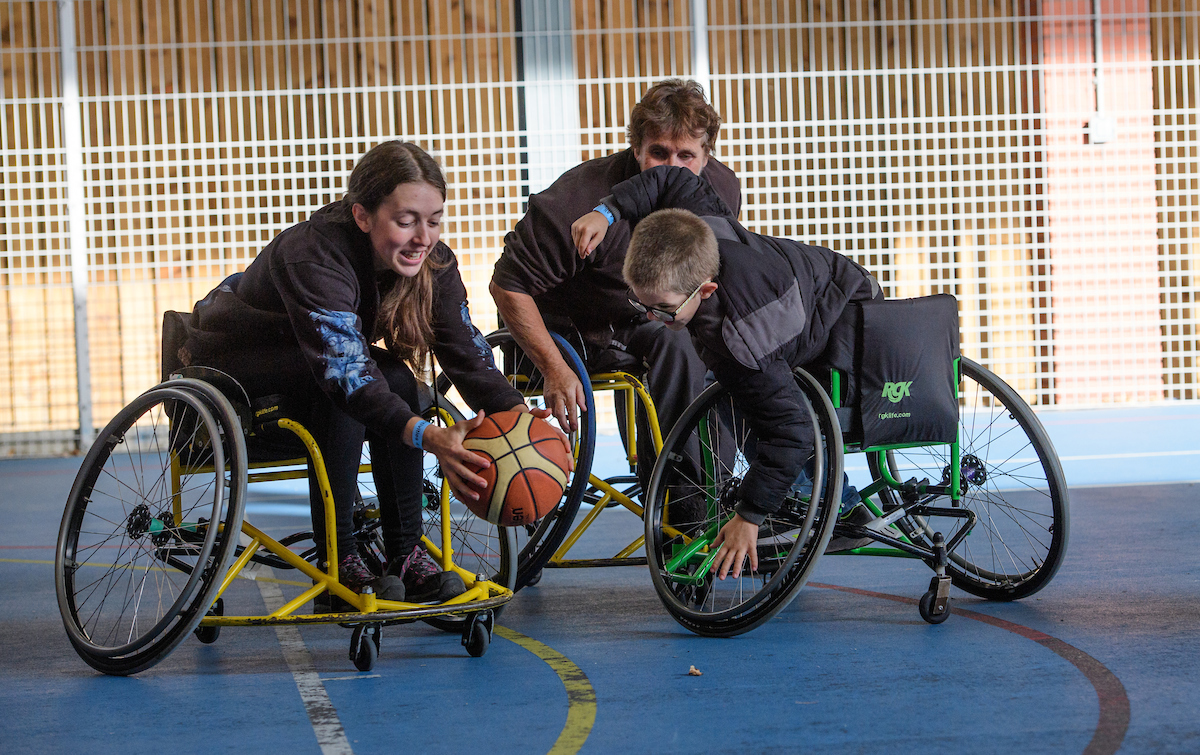Garfield Weston Foundation report shares learnings on funding application process
Garfield Weston Foundation has released a new report evaluating the funding process for its one-off Weston Anniversary Fund, and the experiences of the 775+ charities that applied to it.
Researched and written by Dr. Beth Breeze from the Centre for Philanthropy, University of Kent, and Clare Wilkinson at Garfield Weston Foundation, the Shared Insights report reveals that while over 150 charities were awarded funding, over 600 were unsuccessful applicants to the fund, which was launched as part of GWF’s 60th Anniversary Year. It also explores the areas and amount of funding across different regions in the UK as well as the views of both grantees and those who were unsuccessful.
In total, it reveals that over 2,300 applications were received, including 1,700 in the last three days before the deadline, with requests totalling £192 million. All short-listed applicants requesting £50,000 or more had a visit or a FaceTime conversation with a member of the Grants Team. As a result of the volume and quality of applications, the Trustees more than doubled the amount of funding available (originally £5 million), and approved 156 grants, totalling over £11 million.
Successful applicants all shared four common features:
- A demonstrable impact on the local community
- Appropriate costs in relation to the benefit
- Sensible business plans that could absorb additional revenue costs
- Clear leadership
Applications were received from all parts of the UK with the three regions receiving the largest number and value of grants the North West, East Midlands and Yorkshire & Humber. These regions had previously been amongst the least likely to apply and therefore be funded by the Foundation.
Grantees with no prior experience of the Foundation were the most likely to have heard about the programme from a third party such as an umbrella group or an infrastructure body that encouraged them to apply. A third (35%) of grantees heard about the programme in this way compared to 20% of unsuccessful applicants.
Three-quarters of applications were to fund plans that already existed, rather than trying to fund a new idea, and in fact three quarters of grants went to these applications.
Out of the applications received:
- 19% came under the Community Centre category, for improvements to existing facilities, typically to enable greater footfall
- 19% were in the Specialised category, for organisations typically working with one group, such as the homeless
- 14% fell into the Church category, for installing toilets or increasing accessibility for example
- 10% were requests to purchase a minibus or van to support community activity
- 10% were for improvements to youth facilities with wider community benefit
- 8% were for village hall improvements
- The remainder were for playground improvements (4%), installation or improvement to multi use games areas, purchase of premises, and Scouts/Guides (all 2%)
The categories that saw the largest percentage of successful grant applications were Community Centre (20%), Vehicle (16%), Village Hall (14%), Youth, and Church (both 12%).
More key findings:
Advertisement
- Small charities appreciated the straightforward and clear online application process
- The Foundation’s use of Facetime and Skype calls so that charities could do a ‘virtual’ visit and service users could take part was welcomed across the board
- Lack of time, capacity and expertise were highlighted as key challenges by charities
- Three-quarters of those who were successful said they felt more confident about fundraising and 6 in 10 said the funding helped raised awareness of their organisation
- More broad feedback from funders generally would be welcomed so that charities can learn what they have done well and what needs improvement
Philippa Charles, Director of the Garfield Weston Foundation said:
“Deciding to run a ‘one-off’ fund as part of our 60th anniversary year was new for the Foundation and our Trustees were delighted to be able to award over £11 million to over 150 charities that are meeting real need in their communities with passion and commitment.
“We always seek to learn so we can continually improve, so we felt it was important to understand the experiences of both successful and unsuccessful charities when it came to applying for the Anniversary Fund. We were delighted by such a positive response and the feedback has already enabled us to make improvements to our guidance and to develop new ideas to engage and support applicants.
“Running the fund in the way we did also highlighted the power of working in partnership with other organisations, especially when it came to getting the word out and reaching new charities and communities across the UK, the majority of whom had never applied to us before.
“Above all, the applications to the Weston Anniversary Fund demonstrated the extent of need that exists across the country and the great commitment of staff and volunteers to serve their communities.”
Dr Beth Breeze, Co-author of the Shared Insights report, also commented, saying:
“I’m delighted that the findings from this evaluation project are being shared widely, and hope that the insights will be helpful for both grant-makers and grant-seekers. Despite the obvious power differences, the reality is that everyone in the philanthropy sector – donors, recipients and end beneficiaries – has a common interest in making the best use of the available funding.
“This study helps us gain a better understanding of the challenges faced in designing and implementing a new major grant programme, as well as shedding light on the perspective and concerns of those who apply. I’m particularly pleased that the vast majority of unsuccessful applicants (83%) intend to continue seeking funding, and that entirely volunteer-run organisations are the most likely to say they have learnt something from the process of applying that will help their future fundraising efforts.”




